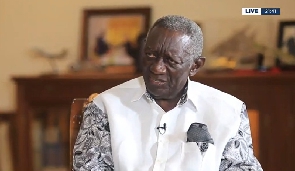Regional News of Friday, 24 October 2014
Source: GNA
Public education facing danger - GNECC
The Ghana National Education Campaign Coalition (GNECC) says the public education system is facing the danger of grinding to a halt and therefore needs urgent attention.
Addressing the media in Accra on Thursday, Mr Leslie Tettey, National Coordinator of GNECC expressed worry about the poor quality of public education system, resulting in the lack of public confidence and poor patronage of public basic education in Ghana.
“More disturbing are the deepening inequalities in access to quality basic education the current system is creating, as those who can afford to patronise private institutions are doing so, whilst the poor and marginalised majority are limited to make do with the largely inefficient public school system,” he said.
Mr Tettey expressed concern over government’s educational policy orientation which showed enormous support for expanded privatisation of basic schools.
He noted that education is a public good and the policy framework should approach it as such, to guarantee social justice and equity in the provision of the right to education in Ghana.
He said the rapid growth of private schools, including “the low cost ones” would foster segregation, reflecting the persistent socio-economic disparities across the country.
The National Coordinator also mentioned the poor enforcement of the regulatory framework for private institutions and the lack of data and transparency on the rampant privatisation of the basic education system.
He urged government to review its policy on the privatisation of the education sector to ensure that quality for all is not compromised and ensure that available resources were efficiently used to promote equality in access to quality basic education.
“Government must also ensure that private schools only supplement, rather than supplant the public education system. It is only through a quality public education system that we will achieve equitable education for all,” he said.
Mr Tettey said, while the laws of Ghana allowed for private participation in education, its monitoring and regulatory systems must be strengthened to ensure that private provision was consistent with the Convention on the Rights of the Child.
He urged the government to engage with development partners such as the DFID and the World Bank “to consider full orientation of international support towards public education, in line with Ghana’s obligations to focus its efforts on its core obligations and towards the most vulnerable groups in society.”










